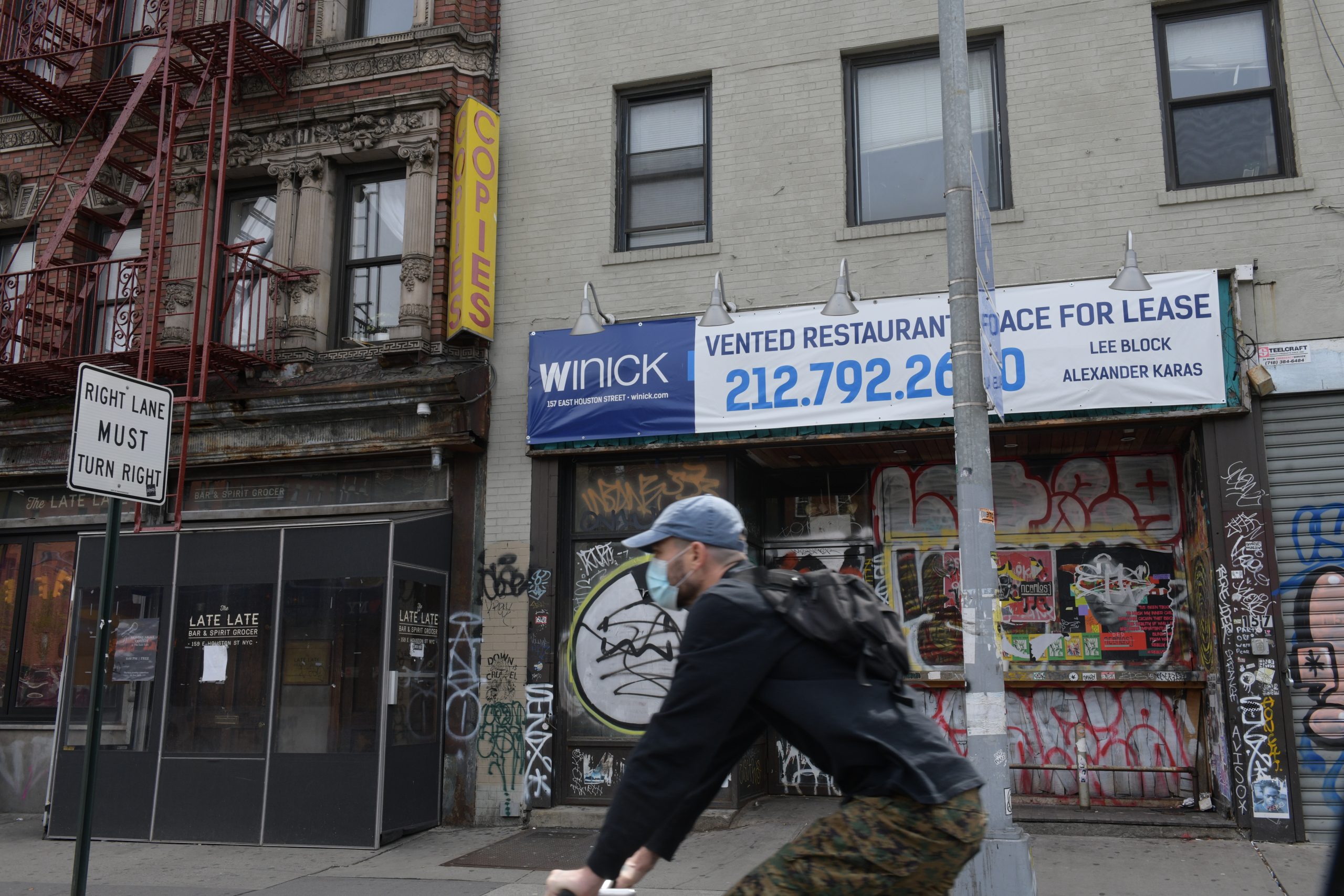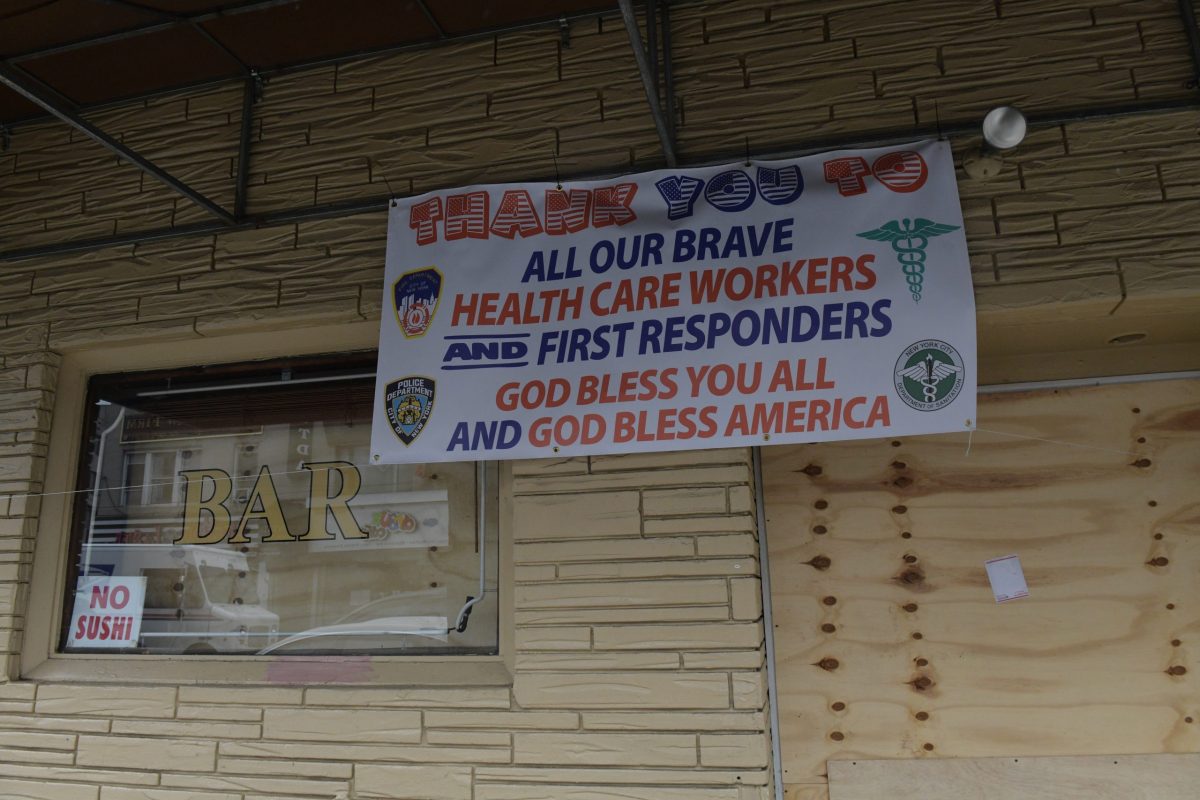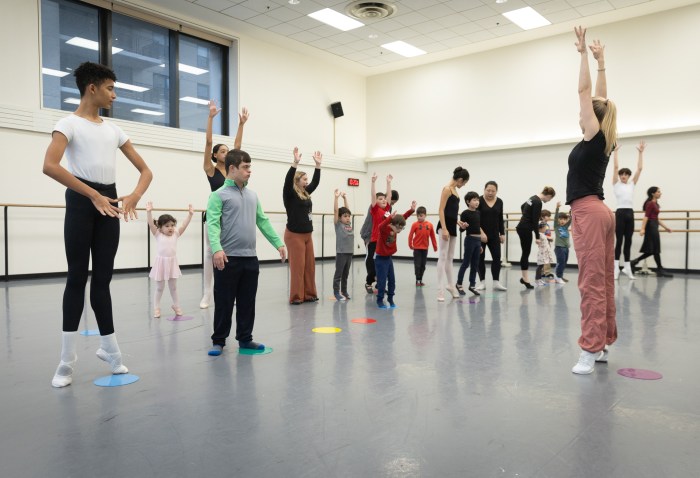Mom and Pop establishments in New York City await a rescue from the COVID-19 axe that hangs over their future.
Thousands of small businesses are hopeful to receive federal stimulus and receive a piece of federal loans. Most businesses look forward to an easing of social distancing that mandates that their establishments be closed or operate in such a way that doesn’t allow customers to gather. Many businesses have already closed for good, leaving empty storefronts throughout the city, in some cases becoming new camp grounds for the homeless.
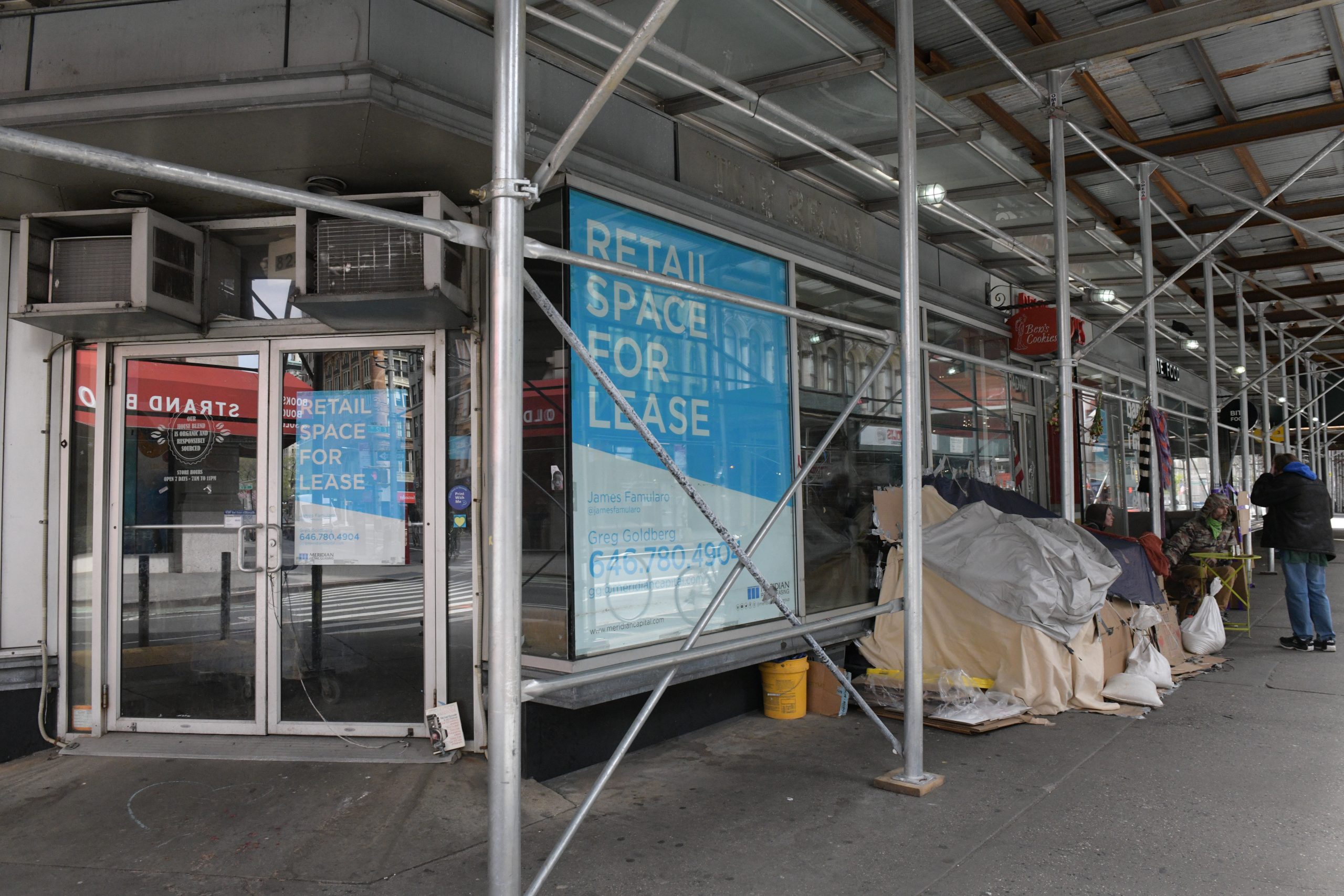
Small businesses and lenders have been awaiting rescue from financial ruin with funding for the Small Business Administration’s Paycheck Protection Program. Senate Republicans and Democrats reached a deal on Tuesday for a bill approving more than $480 billion in additional COVID-19 relief. The House is expected to approve the bill.
The bill working its way towards approval including funding for hospitals, rapid testing and Small Business Administration (SBA) disaster relief loans. It includes $310 billion for the PPP, with $250 billion refilling the program and $60 billion set aside specifically for community banks and credit unions to help small business.
But it will it save most of the businesses in the city? Business experts say the city might lose up to 40 percent of the mom and pop stores, and businesses that were already overextended or were relatively new and on shaky ground.
Rob Walsh, former commissioner for the Department of Small Business Services and currently a small business commentator for 1010 WINS, said a recent survey by the Brooklyn Chamber of Commerce revealed that 84 percent of small businesses had not received any assistance from the first round of stimulus funding.
“I’m afraid they will use the same formula as they did the first round and you will see the same thing happen again,” Walsh sighed. “Mom and pop shops are waiting on line, the problem is many, don’t have a borrowing relationship with banks. I haven’t seen any changing dynamic in the funding. Chains stores are the ones who got the money.”
The first round of funding helped small businesses, but they needed at least 500 employees. Shake Shack’s Danny Meyer returned a $10 million SBA loan they received as “unnecessary.”
“The SBA, as well intentioned, but never played at this level and this was the largest stimulus of $35 billion. They have no apparatus to do this – they are not set up this way,” Walsh said, adding that the city and state have to step up and assist.
Walsh added that there needs to be some changes in the way federal aid is distributed. He called for relaxation of federal regulation on banks “to allow them to take some risks.” He also said more emphasis needs to be on using “community banks and non-profits or community development financial institutions” who he says knows the communities better.
“Right now, small business will tell you that if you don’t have a lending relationship, the big banks won’t touch you and it doesn’t matter what your credit rating is,” Walsh said. “The little coffee shop that opened in Kingsbridge that’s owned by a husband and wife won’t stand a chance.”
Meanwhile, four of America’s biggest banks have been accused of hurting thousands of coronavirus-hit small businesses by unfairly prioritizing emergency loan requests from large customers to earn fatter fees.
Bank of America, Wells Fargo, JPMorgan Chase and US Bank were sued Sunday by California business groups for allegedly failing to process forgivable loans in the PPP on a first-come first-served basis. The banks denied the accusations.
Business organizations speak up
An amalgamation of business organizations, including the Chamber of Commerce of all five boroughs, created a blueprint for the survival of businesses in New York. The downside of most of the proposals, they lean on government to make up shortfalls or forgo taxes on many levels which would mean significant reductions in municipal services and even mean layoffs.
Among the proposals they requested of the city, state and federal government include:
- Require business interruption insurance claims related to COVID-19 be paid. An alternative would be creation of a specialized business recovery fund to pay claims to businesses required to close (or limit their operations), by government order. Federal assistance would help make up insurance company shortfalls.
- The Paycheck Protection Program (PPP) is recommended to be amended to allow the loan to be forgivable if businesses hire back needed staff at a minimum of six months after they fully reopen; allow a larger allocation of the money to be used for rent or other expenses; and, expand the stimulus funding so it is available over a longer period of time, so businesses who do not immediately apply can still obtain funding. Participating banks should accept, review and qualify applications from any small business without requiring existing accounts or loans – a frequent complaint of small business.
- Despite fiscal constraints, the group recommended investigating the implications of converting restaurants, nightlife establishments and retail stores’ sales tax collection into grants. This would give businesses immediate cash flow, the group maintained.
- The majority of businesses in New York City have been mandated by the government to close (or limit their operations) and many therefore cannot pay their rent. Property owners have financial obligations including property taxes, mortgages, maintenance, and capital improvements – much of which is paid for by the rent from businesses. The group recommended a government backstop be provided that would include government programs that include direct federal financial assistance, rent and mortgage leniency and/or a property tax deduction for landlords who provide rent concessions to their tenants.
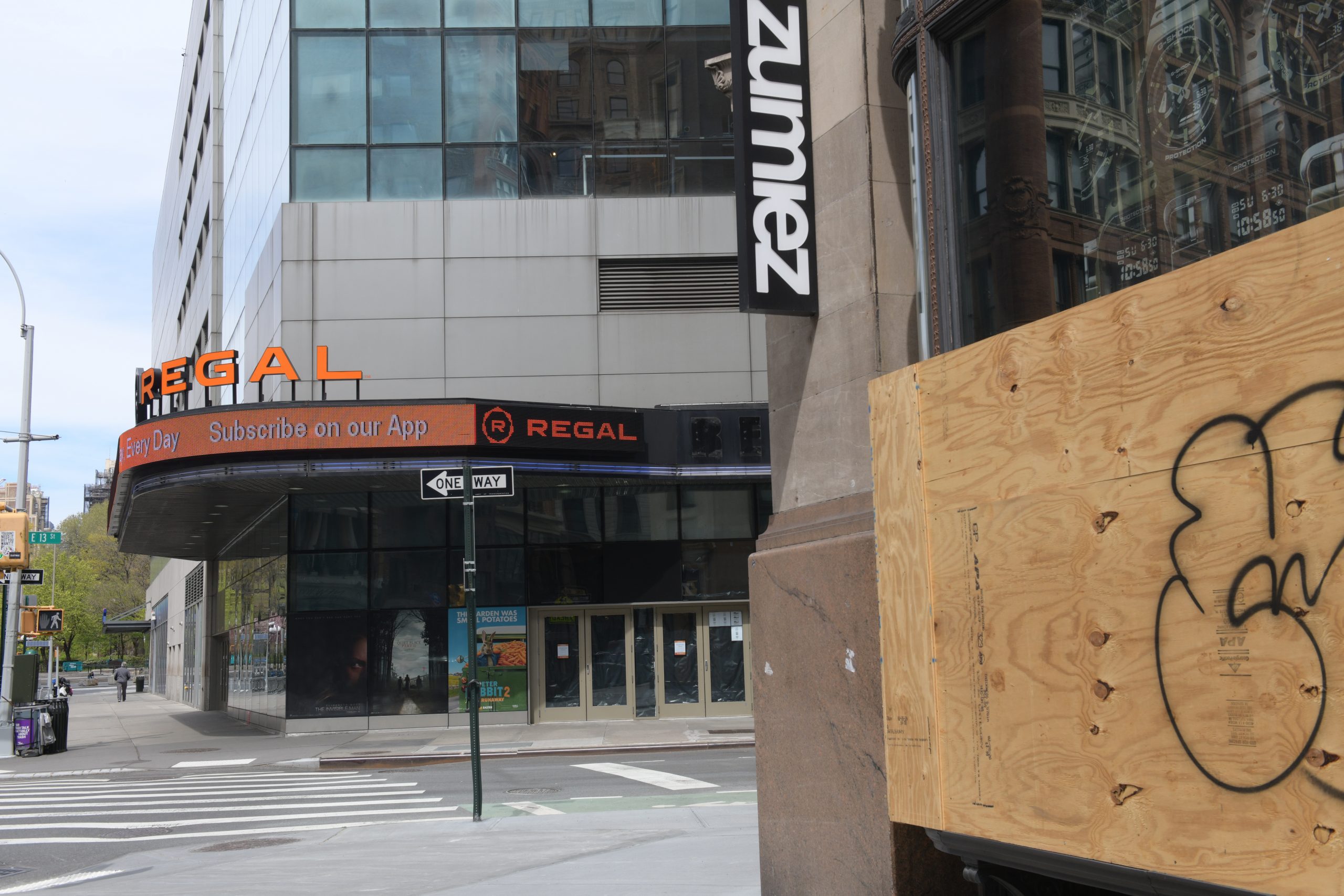
Lisa Sorin, executive director of the Bronx Chamber of Commerce said business groups working collectively are giving government direction on moving forward.
“This is a catastrophe because there is a lack of resources for our small businesses – we not only have to help businesses with 500 employees or more, but how about those with 50 or 10-15 people? These small businesses, restaurants are suffering incredibly and need to have a fair opportunity to be part of this recovery and that’s really frustrating,” Soren said.
Mark Tanis, executive director of the Pitkin Avenue Business Improvement District in Brownsville Brooklyn is mostly small businesses that were mostly empty storefronts in the 70’s and 80’s and now is in danger once again.
“This is something, I have never seen in my lifetime – worse than 9-11 the damage to this extend, unheard of,” Tanis said. “We need to have businesses open, which means that everyone wear masks and gloves then so be it. We can’t stay trapped in because the economy can’t afford this,” Tanis said.
Jaime Bean, executive director of the Sunnyside BID, said many of her businesses are “falling through the cracks” because 75-80 percent of her small businesses are “immigrant owned.”
“The PPP ran out and a lot of businesses didn’t qualify because they didn’t have the right number of employees, no traditional pay wall and then there are questions of immigration status,” Beans said.
